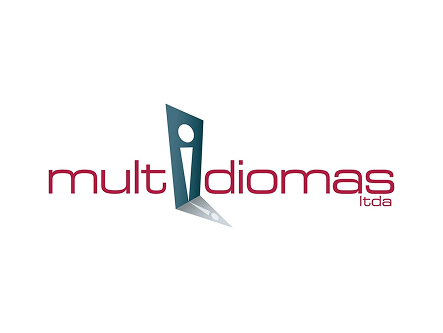Internationalization
Integration of global perspectives, intercultural experiences and international elements

Admisión

Campus

Portal Innova

Academic Portal

Library / Resources

Virtual Classroom
first steps for internationalization
Our main objective is to consolidate a context of international visibility, based on the internationalization of the dimensions of the substantial functions under an intercultural approach.

IDITEK Schools
Mobility of Students, Professionals, Teachers and Researchers (incoming, outgoing)


Outbound National Mobility
Mobility from place of residence to another location within the same country.

National Mobility Incoming
Mobility from the place of residence to our institution within the same country.

Outbound International Mobility
Mobility from place of residence to another country.

Incoming International Mobility
International mobility from the another to our country.
Internationalization of the Curriculum
Integration of global perspectives, intercultural experiences and international elements
iditek’s Policies
- General Framework of the Policy
- Objectives and scope
- Policy Development
- Exchange, Transfer and Joint Research
- Institutional approach
- International and Interinstitutional Relations
General Framework of the Policy
The internationalization of Higher Education involves the promotion of cooperation and integration relations between subjects or homologous, peer or complementary institutions in other places and scenarios of the world. Its main objective is to consolidate a context of international visibility, based on the internationalization of the dimensions of the substantial functions under an intercultural approach.
If we analyse the global influence and the new approaches to Higher Education for the extension of technological transfer (epistemological and conceptual), from the educational management for innovation, we see how elements such as those shown in the following taxonomic analysis of Higher Education are inserted:
In this way, the different mechanisms of internationalization are leveraged from the teaching-learning processes, research, extension, generating academic mobility of students, teachers, administrators, researchers and support staff, the consolidation of double degree programs; the development of joint research projects, the internationalization of the curriculum; technological transfer and business innovation, processes and procedures; as well as the formation and consolidation of international networks, which allow the creation of agreements, among other cooperation scenarios.
Objectives and scope
Objective of the Policy.
Promote inter-institutional cooperation and integration, from an international vision of Higher Education, facilitating the insertion of the actors of the IDITEK educational community into the globalized world through academic, scientific and cultural mobility and cooperation from a regional, national and international approach.
Scope.
a. Facilitates the exchange of knowledge, technology transfer and joint research.
b. Increases the mobility of students, professionals, teachers and researchers.
c. Generates the improvement and qualitative transformation of training standards, quality assurance, curricular development and evaluation systems of academic programs and institutions in different countries.
d. Facilitates the expansion of teaching services by Colombian Higher Education Institutions.
e. Promotes the transformation of learning outcomes and international/intercultural competencies supported by the appropriation of other languages by members of the IDITECK educational community.
f. Co-manages academic relations with national and international institutions and organizations for the transformation of academic programs, projects, products and research and extension activities.
g. Manages double degree and academic mobility agreements.
h. Assume good practices, experiences and results of internationalization and exchange processes for the transformation of the institutional training model.
i. Promotes institutional positioning and international recognition through the creation and innovation of teaching, research, extension, creative and cultural innovation, sports and artistic activities.
j. Manage and transform the international and inter-institutional relations of the IDITEK educational community with the specific national and international interest groups, consolidating articulations that allow the subject to be inserted in global environments.
Policy Development
In accordance with the consolidation of IDITEK’s mission functions, internationalization is based on innovation and transformation processes, enabling Teaching, based on the co-management of knowledge, the transformation and internationalization of teaching-learning strategies, to integrate the subject into the market conditions of national and international communities, reaching a level of maturity and professional training sufficient for the productive and industrial sectors to absorb their capacities through their connection to the real sector.
Exchange, Transfer and Joint Research
Knowledge Exchange, Technology Transfer and Joint Research allow HEIs to establish a level of solid relationships with other institutions based on co-management, exchange and collaboration in knowledge management and two-way learning. In this way, the identification of potential advances in the organic structure of both allows a level of adaptation to changes that leads to innovation (processes, services, procedures, practices) that are relevant when analyzing them from the study disciplines.
This scenario of cultural exchange and transfer of knowledge and the result of good practices increases competitiveness, while improving the business, productive, training and scientific orientation of the HEI, consolidating an opportunity for contribution and transformation to the business and productive development of the region and the country, supported by the efficient and rational use of technology and innovation for the management of processes (productive, commercial and industrial).
This entire process is generated through learning environments and inter and multidisciplinary knowledge management scenarios, which incorporate autonomous learning, knowledge management, i+D+I, entrepreneurship and the consolidation of new skills, competencies and learning outcomes.
Institutional approach
The cooperation and integration of Higher Education Institutions (HEIs) allows for dialogue with their peers in other countries, while consolidating an approach of visibility and participation in the international community; this implies the creation of an international and intercultural dimension of training and the achievement of sufficient learning results so that students, teachers, and strategic support staff have a sufficient level of competence to respond to the challenges of the internationalization of their functions, actions, acts and responsibilities.
In this sense, each of the scenarios, actions, models and policies derived from the institutional horizon of IDITEK will promote such consolidation and level of competence, in order to be able to insert students and teachers into a scenario of scientific and technological internationalization, and responsible interinstitutionality.
In this same sense, the creation and co-management of double degree and joint degree programs will allow allies and cooperating partners to consolidate their curricular processes and leverage the creation of new training scenarios for IDITEK. This implies a level of cooperative research and promotion of the curriculum, the formation of international networks for cooperation and the signing of two-way recognition agreements based on ensuring the minimum conditions and high quality of higher education.
In short, a higher level of regional integration is sought, based on the harmonization of the criteria of international entities with the training, innovation, relationship and transfer practices of IDITEK, promoting the quality of academic programs and the transformation of the sectors in which the different interest groups are inserted.
International and Interinstitutional Relations
IDITEK’s international and inter-institutional relations policy, through its administrative management unit ORII, allows for the consolidation of spaces for the implementation of strategies for positioning, relations, integration, contracting, projection and technological transfer of the institution with national and international peers, supported by the cooperative and collaborative work of all members of the educational community of the University Foundation for Research, Technological Development and Innovation, IDITEK.
Furthermore, from the perspective of transformational training and management, it involves inter- and multidisciplinary cooperation for academic development, the internationalization of the curriculum, global academic mobility and between campuses, of the actors in the essential functions, as well as of the civil servants and support and service personnel, for the benefit of governance, transparency and appropriation of educational management and administration. In this way, Internationalization and Interinstitutionality becomes a transversal, strategic, dynamic and participatory process.
This entire process is managed through scenarios such as:
a) academic offerings,
b) strategic alliances,
c) internationalized virtual and face-to-face campus,
d) calls,
e) management of academic networks and memberships,
f) international research,
g) entrepreneurship networks,
h) statistical studies of international management,
i) technical consultancy,
j) among others, the product of self-assessment and improvement plans from the programs and at the institutional level.







